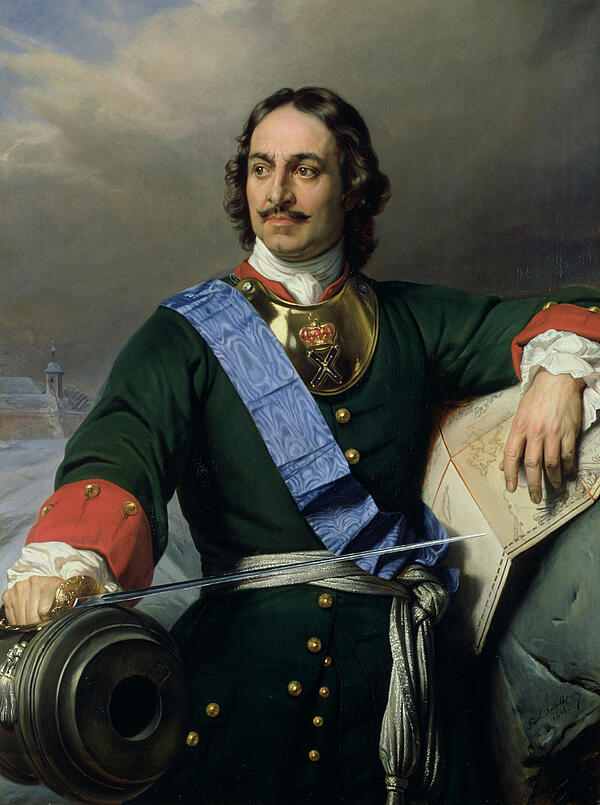Peter the Great - Domestic Reforms
Peter the Great ruled the Tsardom of Russia from 1682 to 1725. Determined to reform and modernise the country’s domestic structure, Peter succeeded in turning the Tsardom into a much larger empire that became a major European power. He also led a cultural revolution that promoted westernised, modernised and scientific political and social systems.

Church Reforms
The Church was at the heart of Peter’s reforms. It was semi-autonomous for years before Peter the Great’s reign, but this proved unacceptable for someone who believed so strongly in religious absolutism.
Peter was interested in the Church for other reasons. For one, it was a very wealthy institution that owned huge amounts serfs and swathes of land - enough to rival the authority of the tsar.
When Patriarch Adrian, the head of the Church, died in 1700 Peter did not bother replacing him. In 1701, a government department known as the Monastyrskii Prikaz took control of church propert. The department paid monks a salary and received all monastic revenues.
In 1721, the Ecclesiastical Reservation officially abolished the church hierarchy and placed it under the control of the Holy Synod, which was entirely connected to the state. The 1721 Regulation controlled what the clergy could do.
The task of the clergy was seen as twofold: to work for the state and to promote Peter the Great’s authority and power, thus leading to total subordination to the crown.
Education Reforms
It was also essential that Peter modernised education if Russia was going to triumph as a mighty European power. Peter longed for a modern army. To achieve this the officers in the military had to be educated. Peter had an appreciation of the importance of having knowledge of science and and thanks to his travels as a youth.
In 1701, Peter the Great founded the School of Mathematics and Navigation in Moscow. It provided Russians with technical education for the first time and much of its curriculum was devoted to producing sailors, engineers, cartographers and bombardiers to support Peter's expanding navy and army.
Many young noblemen were encouraged to travel to Western Europe to learn. The West was seen as the forerunners in economic theory, technology and political science.
Peter also encouraged young people to adopt western values in favour of traditional Russian traditions, which he viewed as outdated. Men were encouraged to shave off their beards and wear western clothes.
Economic Reforms
Peter also knew that the internal economy of Russia was in need of reform. His foreign travels led Peter to believe that Russia’s economy was backwards. He wanted to apply western mercantilism to stimulate agriculture, industry and commerce. While Peter achieved less than he wanted during his reign, he kickstarted the economic growth of the eighteenth century.
Most industry was dominated by the state, which was the source of capital, raw materials, and labour, as well as being the main purchaser of finished goods. WIth the direction of the state. factories producing a wealth of materials and products were established. The state fixed prices and had the right to purchase the first goods from the producers. The profits made by private businesses’ were limited to the surplus of produce left over from the state.
Agriculture
Peter the Great made few reforms to agriculture, which largely maintained its same structure during his reign. Due to the huge size of Russia and the large numbers of peasants, government officials struggled to travel to rural areas and impose the will of the tsar on those who lived there.
The supremacy of the local lord over his people was deeply entrenched. The state did what it could to encourage those in farming to use modern equipment such as harrows and ploughs but to little avail.
Peter the Great died in 1725, having reigned 42 years.
See also: Peter the Great - Military Reforms
MLA Citation/Reference
"Peter the Great - Domestic Reforms". HistoryLearning.com. 2024. Web.
